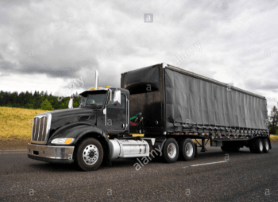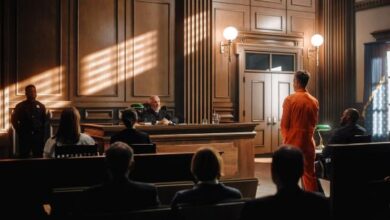Motorcycle Accidents: When Do You Have a Case?

San Jose is often considered a significant motorcycle hub within the United States. While it may not have the same reputation as cities like Sturgis, Daytona Beach, or Los Angeles, San Jose and the surrounding areas have a vibrant motorcycle culture and community. The city’s favorable weather conditions, characterized by mild winters and warm summers, make it conducive for year-round motorcycle riding. Moreover, the region’s proximity to scenic routes, coastal roads, and mountainous terrain provides ample opportunities for motorcycle enthusiasts to explore and enjoy their rides.
Sadly, California’s notorious traffic levels factor into any motorcycle trip and create hazards for all riders. The careless and reckless drivers’ actions often put even the most careful riders at risk. While 2023 data is being tallied, previous years exhibit a worrying picture. From 2018 to 2019, motorcycle accident injuries increased from an estimated 82,000 victims to 84,000 victims. However, the recent jump in the tragic loss of life in motorcycle collisions has been even more dramatic. This year is expected to record the same or higher numbers.
If you’re injured or your bike is damaged, you can seek compensation for the monetary and non-monetary losses. Consult with a San Jose lawyer from firms like DonGaline.com to have your case assessed. Then reach out to the defendant’s insurance provider to claim compensation. Read on to learn when you can and can’t file a claim, who you can sue, and what you need to prove that the defendant is liable.
When Are You Entitled to a Claim?
Anyone injured in a motorcycle accident due to someone else’s negligence may claim compensation. Therefore, you can file a claim if you’re:
- The motorcyclist or the passenger
- The driver or a passenger of the other vehicle involved in the crash
- The parent or guardian (legal) of a minor involved in the crash
- A cyclist or pedestrian injured in the accident
Nonetheless, a few rules apply. For instance, you cannot only seek compensation if you are injured or suffered losses in the accident. This means you must show proof of injury or other losses, such as damage to your motorcycle or personal possessions. You need verifiable medical reports to show proof of injury.
Additionally, you’re only entitled to a claim if:
- You’re within the state’s motorcycle laws: The North Dakota Motorcycle Laws, for instance, like a few other states’ laws, are stringent. First, you must be 14+ years old to operate a motorcycle. Secondly, you need a valid permit or license. Also, motorcyclists under 18 years must wear a helmet. You may lose your right to a claim if you breach these requirements.
- You’re within the statutes of limitations: Limiting statutes define the period in which you can initiate a criminal or civil legal proceeding. Otherwise, you lose the right to legal action. In line with this requirement, for example, you must file a motorcycle accident claim within six years if you live in North Dakota.
Who Can You Sue in a Motorcycle Accident?
Everyone using the road has a legal duty of care not to cause harm to others. They may be liable for the damages if they fail in that duty. An experienced personal injury lawyer can help you bring a claim against the following persons:
- The other driver(s): Often, the at-fault party in a motorcycle accident is another driver or motorcyclist.
- The manufacturer: If the accident results from a faulty component, you can sue the motorcycle manufacturer or part maker.
- The dealership: The dealership is partly at fault if they knowingly sold you a defective motorcycle.
- Helmet manufacturer: For helmets purchased separately, you can file a claim against the helmet maker for poor-quality products.
- The government: You can file a claim against the state’s government for traffic accidents, provided you give a 180-day notice to the state’s Risk Management Fund.
Proving Liability in a Motorcycle Accident
Unfortunately, proving liability in a motorcycle accident can be challenging. Typically, you must prove the following;
- The other party was negligent: Negligence means doing something they shouldn’t or failing to do something they should.
- Their negligence caused the accident: You have no case if the other party’s negligence didn’t cause the accident.
- The accident is directly responsible for the damages: First, you must prove that you were injured or suffered losses. Then you must link the accident to the damages.
You need medical expert reports, police reports, eyewitness reports, medical bills, and pay stubs showing lost revenue to prove your case.
Calculating Damages
Your lawyer will help you negotiate deserving compensation for your losses. Damages typically include the cost of medical treatment, lost wages, repairing or replacing the motorcycle, replacing other personal belongings, and non-monetary damages for the pain and suffering.
Nine out of ten times, you won’t need a full trial before a judge and jury. However, your lawyer may go to court if the settlement process is unsuccessful.


